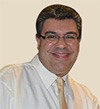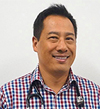Psychological
Depression
Depression, known as major depression or clinical depression, is a mood disorder in which the person feels a sense of sadness or loss and may have trouble doing normal day-to-day activities.
There is no known cause of major depression. Scientists believe that major depression may occur as a result of chemical changes in the brain. They think that these changes may be caused by abnormal genes or certain stressful events or a combination of both. Individuals with a family history of depression disorders are more prone to develop major depression, but are not limited to only them. Major depression can occur in children, teenagers, and the elderly. Women are nearly twice as likely as men to suffer from depression.
Certain factors that seem to increase the risk of developing or triggering depression include alcohol or other drug abuse, medical conditions such as hypothyroidism, cancer, or chronic pain, sleep disturbances, and stressful life events. It is considered that hormonal disturbance during puberty, menstruation, pregnancy, miscarriage, and menopause is the cause for the higher incidence in women.
People with depression will be more pessimistic and will be under the impression that every task is challenging for them and cannot be solved easily. The characteristic symptoms of major depression include agitation or restlessness, irritability, lack of interest in pleasure activities, poor appetite or overeating, fatigue and loss of energy, tiredness, poorer concentration, insomnia or excessive sleeping, frequent thoughts of death or suicide, and feeling of worthlessness, hopelessness and helplessness. In severe cases, psychotic symptoms such as hallucinations and delusions may occur.
Clinical depression is diagnosed based on your symptoms, the frequency and severity. Your doctor may question you about your medical history, family history and symptoms. Blood tests and urine tests are often performed during the evaluation to rule out other causes of the symptoms.
Treatment options for depression include medications, talk therapy and electroconvulsive therapy (ECT). These treatment options may be used alone or in combination. Medications used to treat depression are antidepressants. In some cases additional medications may be needed to enhance the effectiveness of antidepressants. Your doctor may warn you about suicidal tendencies when prescribed for children and adolescents, especially in the first few weeks after starting medications. Because of this risk, children under these medications must be closely monitored.
Talk therapy or psychotherapy is a way of treating depression by talking about your condition and related issues with a health care provider. The types of talk therapy most commonly used for depression are cognitive-behavioral therapy and interpersonal therapy (IPT). Cognitive behavioral therapy helps to get rid of negative thinking, makes the patient aware of symptoms and recognises those that worsen your condition, and develop problem-solving skills. Interpersonal therapy focuses on improving troubled personal relationships that may have been associated with a person’s depression. Joining a support group may also be helpful in treating clinical depression.
Electroconvulsive therapy, also called ECT or shock therapy may be used if medications or psychotherapy is ineffective. In ECT, electrical impulses are given to the nerve cells to improve the mood. The most common side effects are confusion, disorientation, and memory loss. Other brain stimulating techniques include vagus nerve stimulation (VNS) and repetitive transcranial magnetic stimulation (rTMS).
You may feel better with regular exercising, maintaining good sleep habits, involving in group activities, talking to someone you trust, and finding activities that make you feel good.
If you feel depressed, see your psychologist as soon as possible. If left untreated depression may get worse and can lead to other mental and physical health problems.
Sunday / Public Holidays : Closed









 SKIN CANCER SCREENING
SKIN CANCER SCREENING 








